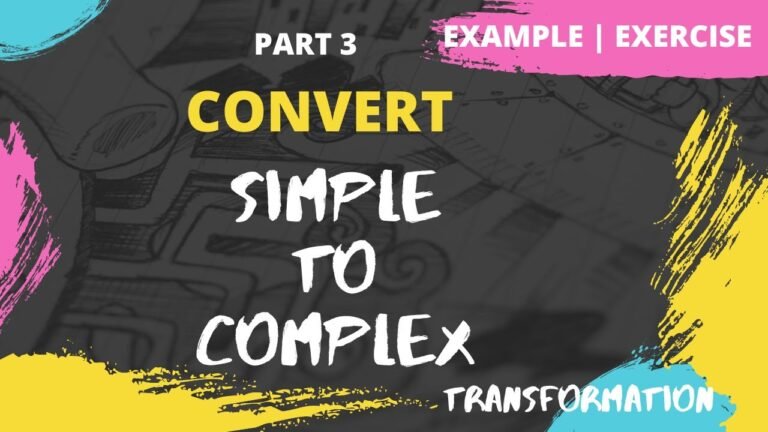Justice and Nonviolence: Insights from MLK’s Letter from Birmingham Jail
In April 1963, Martin Luther King Jr. penned a powerful and enduring message from the confines of a Birmingham jail, a letter that would resonate through the ages as a cornerstone of the civil rights movement. Addressed to a group of clergymen who criticized his methods, King’s eloquent words transcended their immediate context, articulating the moral imperative of justice and the urgency of nonviolent protest. This seminal letter not only defended the necessity of direct action against systemic racism but also illuminated the deep-seated struggle for equality, making it a pivotal document in American history that continues to inspire activism today.
What impact did MLK’s Birmingham letter have?
MLK’s Letter from Birmingham Jail highlighted the urgency of civil rights, criticized complacency, and inspired activism, emphasizing justice and moral responsibility in the fight against segregation.
What motivated King to write this letter?
Dr. Martin Luther King Jr. found himself compelled to pen his famous letter while imprisoned, a response to the criticisms leveled against him by eight clergymen in a newspaper article titled “A Call for Unity.” This moment was not just a reaction; it was a profound reflection of his commitment to justice and equality. King’s decision to respond demonstrated his belief that dialogue, even in the face of adversity, is essential for progress.
In his letter, King articulated the urgency of the civil rights movement, emphasizing that the struggle for justice could not wait. He passionately defended his methods of nonviolent protest, highlighting the moral imperative to confront injustice head-on rather than remaining passive. His words resonated with a sense of purpose, urging others to recognize the importance of standing up against oppression, regardless of the personal risks involved.
Ultimately, King’s letter was a testament to his extraordinary courage and unwavering dedication to the cause. It served as both a clarion call for unity among those who seek justice and a reminder that true change often requires individuals to challenge the status quo. Through his eloquent prose, King inspired countless others to join the fight for civil rights, leaving an indelible mark on history and the ongoing struggle for equality.
What inspired King to compose this letter?
In 1963, Martin Luther King Jr. felt compelled to address the concerns of eight clergymen who publicly criticized his nonviolent protests against segregation in Birmingham, Alabama. Their opposition reflected a common sentiment among some religious leaders who believed that the fight for civil rights was too radical and should be pursued through more measured approaches. King recognized the importance of engaging with these influential figures to clarify his intentions and the urgent need for social change.
King’s letter emerged as a powerful response, articulating the moral imperative behind his actions and the broader struggle for justice. He emphasized that waiting for change often meant waiting indefinitely, a sentiment that resonated deeply with the African American community enduring the harsh realities of discrimination. By addressing the clergymen directly, he sought to bridge the gap between different perspectives, urging them to understand the urgency of the civil rights movement.
However, the letter was not solely the product of King’s thoughts; it was also shaped by the collective experiences and aspirations of countless individuals fighting for equality. Through his eloquent words, King brought to life the frustrations and hopes of a generation, transforming the letter into a rallying cry for justice. It became a pivotal document, inspiring not only those in the struggle but also future generations to advocate for a more equitable society.
What is the central message of the Letter from Birmingham Jail?
In the Letter from Birmingham Jail, Martin Luther King Jr. passionately articulates the urgency of civil rights activism, emphasizing that “justice too long delayed is justice denied.” He argues that individuals have a moral responsibility to disobey unjust laws and highlights the interconnectedness of communities, asserting that an injustice anywhere is a threat to justice everywhere. Through his eloquent reasoning and personal reflections, King calls for nonviolent resistance as a means to achieve equality, urging society to confront its moral failings and to recognize the necessity of immediate action for the sake of justice and human dignity.
Embracing Peaceful Resistance in the Fight for Justice
In a world often marred by conflict and strife, the concept of peaceful resistance emerges as a powerful beacon of hope. It embodies the belief that change can be achieved through nonviolent means, fostering dialogue and understanding rather than division. This approach not only honors the dignity of individuals but also builds a broad coalition of support that transcends societal divides. By prioritizing empathy and compassion, peaceful resistance offers a sustainable path toward justice, inviting all voices to participate in the struggle for equality.
As communities rally around shared values and collective action, the impact of peaceful resistance becomes increasingly tangible. Movements rooted in this philosophy inspire others to challenge injustice with creativity and resolve, demonstrating that true strength lies in unity and perseverance. In embracing these principles, individuals not only honor the legacies of past leaders but also lay the groundwork for future generations to continue the pursuit of a just and equitable society. Through peaceful means, the fight for justice transforms from a battle into a collaborative journey, illuminating the potential for lasting change.
Lessons from MLK: The Power of Nonviolent Action
Dr. Martin Luther King Jr. demonstrated the profound impact of nonviolent action in the struggle for civil rights, illustrating that true strength lies in restraint and moral courage. His approach transcended mere protest; it cultivated a movement rooted in love, unity, and the unwavering belief in justice. By embracing peaceful resistance, King inspired countless individuals to confront oppression with dignity and resilience, proving that change is achievable without resorting to violence. His legacy reminds us that nonviolent action can dismantle the most entrenched systems of inequality, empowering voices that would otherwise go unheard and igniting a collective commitment to a more just world.
Bridging Divides: The Timeless Relevance of MLK’s Message
In an era marked by division and discord, the teachings of Dr. Martin Luther King Jr. resonate with renewed urgency. His unwavering commitment to nonviolence and equality offers a powerful blueprint for addressing contemporary challenges. By advocating for understanding and empathy, Dr. King reminds us that progress is not just a goal but a collective journey, one that requires active participation from every individual. His vision encourages us to look beyond our differences and unite for a common purpose, fostering a spirit of community that transcends barriers.
As we reflect on Dr. King’s legacy, we see an invitation to engage in meaningful dialogue and action. His message of love and justice serves as a guiding light, urging us to confront systemic injustices with courage and compassion. In a world where polarization often reigns, King’s teachings inspire us to bridge divides, rekindling hope and solidarity among diverse groups. Embracing his principles not only honors his legacy but also empowers us to create a more inclusive and equitable future for all.
The Letter from Birmingham Jail remains a powerful testament to the enduring struggle for justice and equality. Martin Luther King Jr.’s eloquent words challenge us to confront our own complacency and to recognize the moral imperative of taking action against injustice. His insights continue to inspire new generations, reminding us that the fight for civil rights is not just a chapter in history but a call to engage actively in the ongoing pursuit of freedom and dignity for all.




